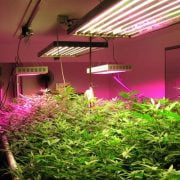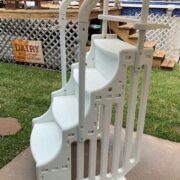The demand for HVAC installation is on the rise. Increasing temperatures have forced homeowners to find ways of staying indoors comfortably. Fortunately, modern heating and cooling systems are more reliable than ever.
However, the decision to install an HVAC unit in your home isn’t an easy one. You should be wary of various factors influencing the unit’s overall effectiveness. Like other major household installations, you should hire a professional air conditioning company to install the unit. Below are other important things to know before installing the unit.
1. Choose the Right HVAC Unit
Before buying an HVAC unit, you should make a purchase decision based on the general climate of your area of residence. Each state in the U.S experiences slightly varying climatic conditions. For instance, Texas experiences a hot and humid climate for most days of the year. Freezing is a rare occurrence. Home and property owners in Texas should find a reliable air conditioner that can handle constant high temperatures.
Apart from the functionality, other factors also come into play when choosing the right air conditioner. One major factor is the unit size. HVAC size determines the cooling and heating capacity of the system. An undersized HVAC unit will ineffectively warm or cool your home. Similarly, while an oversized unit will cool your home properly, it won’t maintain indoor humidity, potentially creating mold problems.
HVAC manufacturers produce different HVAC trim levels that come in varying sizes and configurations. If you aren’t well versed with the different sizes, your best bet is to consult AC Indianapolis experts. They can recommend the best size and model for your home.
You should also consider the units’ energy efficiency. In most cases, expensive HVAC systems prove efficient, enabling homeowners to recover the purchase costs over time. Ensure that your system has an Energy Star rating and a high SEER rating. SEER (Seasonal Energy Efficiency Ratio) specifies the unit’s energy consumption over the year. Most systems have SEER ratings ranging between 13 and 20.
Lastly, consider the system’s life cycle costs and maintenance before settling on a cheaper HVAC system. While high-quality systems have high upfront costs, they have low maintenance costs. If you buy a high-quality HVAC unit from a reliable manufacturer, anticipate low repair and maintenance costs.
2. Choose Between Window and Central Units
Part of selecting the right HVAC is deciding if a window or central HVAC unit best suits your home. Central air conditioners are best for buildings without multiple floors. However, while a central unit covers the entire house, installing this unit is quite pricey. If you are moving into a single-story house or have a small family, a window unit best suits your situation.
Central air conditioners cover all rooms including an underground room, regardless of whether they need heating/cooling. You can’t choose where to keep warm or cool as they maintain standard temperatures in all rooms. Window units allow you to choose specific areas to be warm or cool.
3. Know What to Expect During Installation
Besides choosing the right unit, the installation process is also very important. How the unit is installed determines its overall efficiency. Unlike installing a ceiling fan, installing an HVAC unit may take one or several days, depending on the size of your home or commercial building. Your preferred AC company will start by staging the property for installation.
If done right, staging prevents delays in locating missing parts and helps professionals anticipate possible challenges, such as fit or duct issues, beforehand. After the system has been installed, whether central HVAC or mini-split system, the company conducts a thorough check to ensure all parts are in place before starting it. Working with a reliable AC installation company eliminates imperfections, allowing you to enjoy your air conditioner for years to come.
4. Decide Whether You Need Purifiers
Unlike before, air purification is increasingly becoming a concern for most homeowners. Including UV lamps, air scrubbers, and electrostatic filters in your system provides additional comfort at home. Clean air improves indoor air quality and ensures that the system works efficiently. Clean air is beneficial to anyone with asthma or allergies. Air purifiers also eliminate mold issues caused by water leakage, filters viruses, and airborne contaminants.
5. You Should Have a Permit
Most AC companies don’t know or simply ignore the importance of obtaining a permit from local authorities when installing HVAC systems. A reputable installation company should obtain the permit and pass the cost to their clients as part of the quote. With this, authorized inspectors will visit your home to ascertain that the unit is installed correctly according to your city’s building codes.
A complete HVAC unit needs electrical, natural gas, and plumbing systems. If the installed system passes the inspection, you will be assured that the unit will function safely and effectively.
Endnote
While there are many other things to note before installing an HVAC unit, the tips mentioned above are crucial. With the help of an air conditioning expert, you can rest assured of proper installation. Working with professionals assures energy-efficient and comfortable indoor temperatures all year round.














Comments